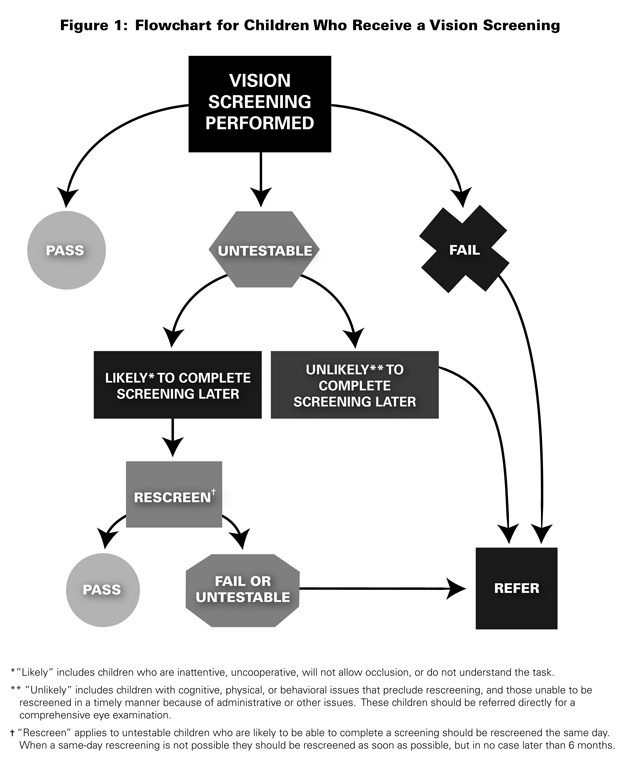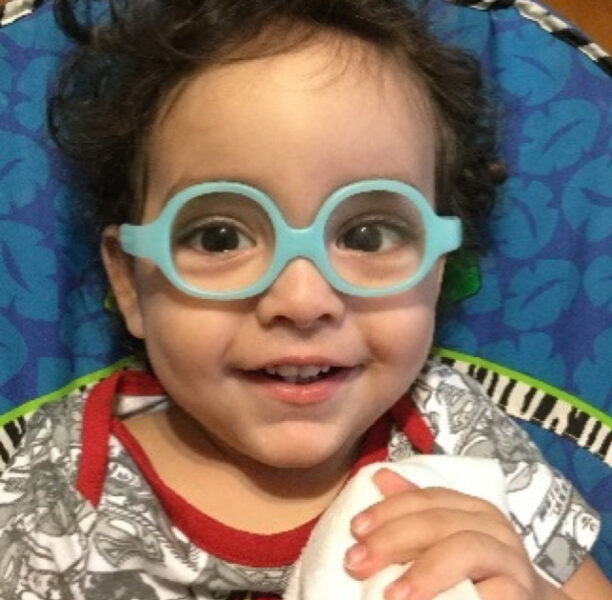Vision Screening for Children 36 to <72 Months: Recommended Practices
Recommendation Summary
- Children who are inattentive, uncooperative, will not allow one eye to be covered for monocular visual acuity testing, or do not appear to understand the screening task are not considered to have failed, but instead are deemed “untestable”.
- Untestable preschool children are about twice as likely to have a vision problem than those who successfully pass a screening. (73)
- If practical, untestable children should be rescreened the same day. When a same-day rescreening is not feasible, rescreening should be scheduled as soon as possible, but in no case later than 6 months.
- Because children unable to be screened with visual acuity testing can often complete autorefraction testing and vice versa, (73) one should consider using the alternate method for rescreening if both are available.
- Untestable children with cognitive, physical, or behavioral issues that are likely to preclude successful rescreening, children who are unable to be rescreened within 6 months, and those who fail rescreening should be referred directly for a comprehensive eye examination by an optometrist or ophthalmologist.
Refer to the figure below for a visual summary of these recommendations:



